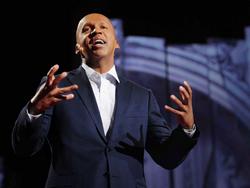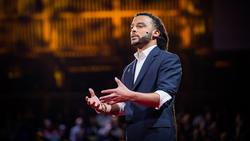__________
Greetings -
These were areas we said we might think about as we finish up our read of Just Mercy.
- The importance of building trust with the Black communities. Are there other examples of Stevenson's work where he continues to comment on this? Are there other examples of where Stevenson continues to emphasize the importance of trust in keeping Black communities feeling safer in an atmosphere of domestic terror?
- Other examples of "bits of hope"?
- Does he come back to the transcendent idea of hope as "an orientation of the spirit"? Where, in what context, how?
- Can you find other examples of "coded" language? For example, "the community" meaning in reality the Black community, and "we" meaning, well, us Whites.
- Re-reading the section on Ed Bradley's 60 Minutes visit to Monroe County and seeing if we can deconstruct more diligently the effect that event had on all the communities involved. You can view this segment of 60 minutes, Fall 1992, below.
I've also included Fran Carlson's reply regarding current plans of the St. Paul's LOC with regard to prison reform. Note the Action they are planning. Some of us might consider attending their LOC meeting on October 11.
See you next Tuesday!
Charlie
___________________
Here are some references you might find interesting. BTW, Chapman is chilling on the Ed Bradley interview.
|
www.ted.com
In an engaging and personal talk -- with cameo appearances from his grandmother and Rosa Parks -- human rights lawyer Bryan Stevenson shares some hard truths about America's justice system, starting with a massive imbalance along racial lines: a third of the country's black male population has been incarcerated at some point in their lives. These issues, which are wrapped up in America's unexamined history, are rarely talked about with this level of candor, insight and persuasiveness.
| ||
|
www.nytimes.com
Walter McMillian walked out of a courtroom here today a free man after prosecutors conceded that he had spent six years on Alabama's Death Row because of perjured testimony and evidence withheld from his lawyers. Whether he was also put there for being a black man who violated the racial and sexual taboos of the small-town South is only one of the issues swirling around a case that has evoked not only distinctly Southern but also far broader questions of race and justice.
| ||
|
www.ted.com
When a kid commits a crime, the US justice system has a choice: prosecute to the full extent of the law, or take a step back and ask if saddling young people with criminal records is the right thing to do every time. In this searching talk, Adam Foss, a prosecutor with the Suffolk County District Attorney's Office in Boston, makes his case for a reformed justice system that replaces wrath with opportunity, changing people's lives for the better instead of ruining them.
| ||
Is the Cathedral LOC still actively involved with prison reform work?
Yes.
If so, how active is the group now?
Active
Is the activity focused?
We are planning a business/ex-offender forum to take on the issue of ex-offenders having a hard time getting jobs after release. We had originally planned it for Oct. but our day was an important Jewish holiday, so we are now focusing on Nov. We had had a traditional action a year or so ago and this is a different format. We are not trying to get a huge audience because we want a dialogue and conversation, but it would be fine for CCP people to come. No date is set yet. Our next LOC meeting is Oct. 11 at 5:15. You'll welcome to come.




